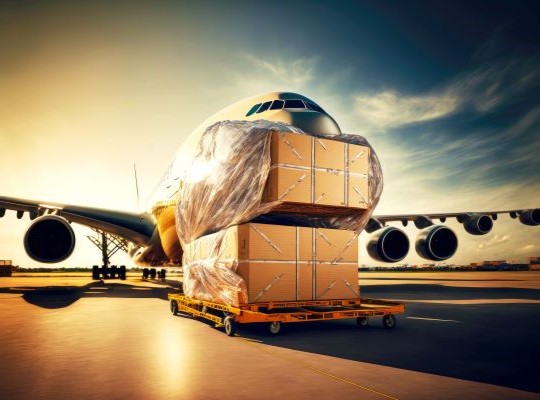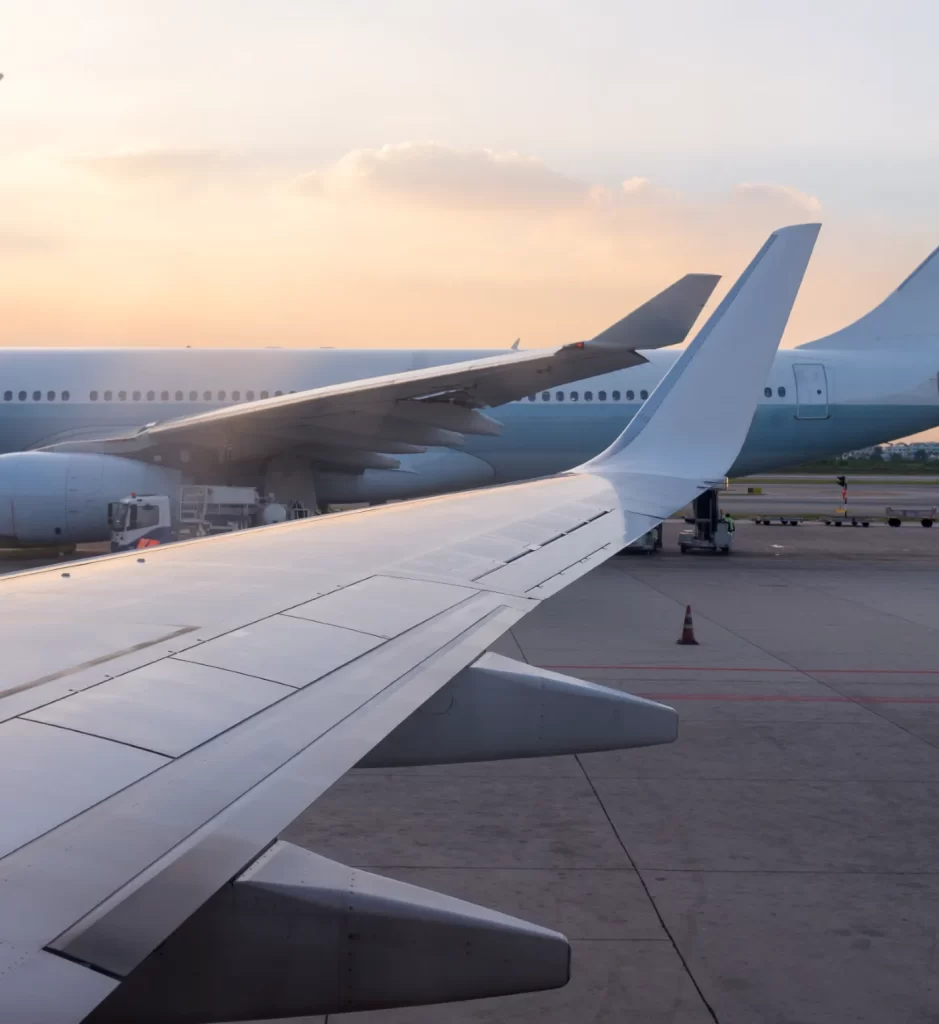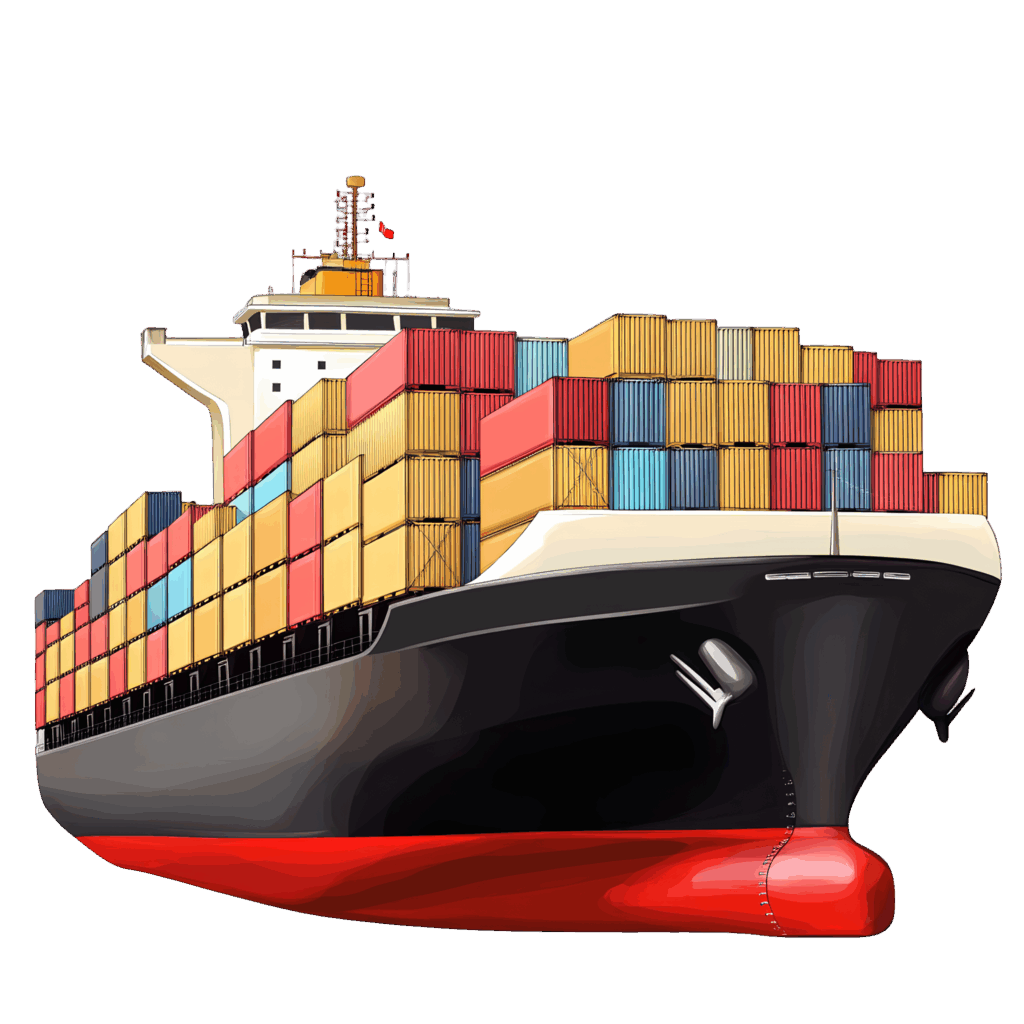- By Della tj
- September 17, 2025
- Air Freight, Shipping
Air freight from China to Germany is a preferred shipping solution for businesses needing fast, secure, and reliable deliveries. Although this option is more expensive than sea freight, it ensures quick turnaround, higher security, and predictable delivery schedules. With careful planning and the right logistics partner, companies can optimize costs, avoid customs delays, and maintain supply chain efficiency.
What Is the Average Transit Time for Air Freight from China to Germany?
The average transit time for air freight from China to Germany ranges from 3 to 7 days, depending on the chosen route and airline.
| Route | Average Transit Time |
|---|---|
| Shanghai → Frankfurt | 3–5 days |
| Shenzhen → Munich | 4–6 days |
| Guangzhou → Berlin | 4–7 days |
| Beijing → Frankfurt | 3–5 days |
Additionally, indirect flights or customs inspections may extend total delivery time, particularly during high-demand seasons.
How Much Does Air Freight from China to Germany Cost?
Air freight cost is primarily determined by chargeable weight, which considers actual and volumetric weight.
| Weight Bracket | Average Cost (USD/kg) |
|---|---|
| 0–100 kg | $7 – $10 |
| 101–300 kg | $6 – $8 |
| 301–500 kg | $5 – $7 |
| 500+ kg | $4.5 – $6 |
Moreover, fuel surcharges, peak season demand, and cargo type can influence final shipping rates.
What Factors Affect Air Freight Transit Times?
Several factors influence transit schedules:
- Congestion at Chinese airports like PVG or CAN.
- Weather disruptions in Europe or Asia.
- Seasonal demand spikes, especially during Christmas or Chinese New Year.
- Customs clearance delays due to incomplete documentation.
Accordingly, importers should add buffer time when planning shipments.
What Documents Are Required for Air Freight from China to Germany?
Accurate documentation is critical for customs clearance.
| Document | Purpose |
|---|---|
| Commercial Invoice | Declares product value and details |
| Packing List | Lists contents and packaging |
| Airway Bill | Serves as contract of carriage |
| Certificate of Origin | Confirms manufacturing country |
| Customs Declaration (EU) | Required for EU import |
| Import Licenses (if needed) | Necessary for restricted products |
Failure to provide these documents may result in delays and penalties.
Real Case Studies of Air Freight from China to Germany
Case 1 – Electronics Shipment
- Route: Shenzhen → Frankfurt
- Cargo: 1,200 kg laptops
- Cost: $7,200
- Transit: 6 days
- Outcome: Arrived in time for peak retail season.
Case 2 – Automotive Parts
- Route: Shanghai → Munich
- Cargo: 800 kg engine components
- Cost: $4,800
- Transit: 4 days
- Outcome: Prevented production halt in German automotive plant.
What Are the Pros and Cons of Air Freight Compared to Other Modes?
| Mode | Pros | Cons |
|---|---|---|
| Air Freight | Fastest, reliable, secure | High cost per kg |
| Sea Freight | Cheapest for bulk shipments | Slow transit (30–40 days) |
| Rail Freight | Balanced cost, eco-friendly | Limited to certain EU hubs |
Therefore, air freight is best for urgent, seasonal, or high-value goods.
How Do Customs Duties and VAT Work in Germany?
Goods entering Germany are subject to:
- Customs Duty: Ranges from 0–20% depending on HS code.
- VAT (Mehrwertsteuer): Standard rate of 19% on imports.
- Excise Duties: For alcohol, tobacco, or energy products.
Moreover, all importers must have an EORI number to process customs clearance within the EU.

Should Importers Use FOB, CIF, or DDP for Air Freight?
Incoterms help clarify responsibilities between buyers and sellers.
| Term | Seller Responsibility | Buyer Responsibility | Best For |
|---|---|---|---|
| FOB | Delivery to Chinese airport | Freight + EU customs | Experienced importers |
| CIF | Freight & insurance to Germany | Customs clearance | Balanced option |
| DDP | Door-to-door delivery | Minimal obligations | New importers |
For first-time importers, DDP reduces risks despite higher costs.
How Can Importers Reduce Air Freight Costs from China to Germany?
- Ship during off-peak seasons.
- Consolidate cargo with freight forwarders.
- Optimize packaging to reduce volumetric weight.
- Compare airline quotes for cost efficiency.
- Negotiate contracts with logistics providers.
As a result, businesses can reduce annual shipping expenses while maintaining timely deliveries.
Why Work with a Freight Forwarder for Air Freight?
Freight forwarders streamline logistics by:
- Handling booking and documentation.
- Managing customs clearance in China and Germany.
- Consolidating cargo to save costs.
- Providing cargo insurance and tracking services.
Consequently, they ensure compliance, minimize risks, and improve overall supply chain efficiency.
Conclusion
Air freight from China to Germany remains the fastest and most secure method for shipping urgent or high-value goods. With transit times of 3–7 days and costs averaging $5–$10/kg, it outperforms sea freight in speed, albeit at higher expense. Moreover, compliance with customs duties, VAT, and documentation is essential. By working with experienced freight forwarders, businesses gain cost transparency, efficiency, and reliable supply chains. Ultimately, air freight ensures speed, reliability, and peace of mind in global trade.
- Consult TJ China Freight Forwarding for the lowest quote. They will provide you with reliable, cost-effective service.
FAQs
Q1.What is the average cost of air freight from China to Germany?
Costs range $5–$10/kg depending on shipment size, airline choice, and seasonal demand affecting rates.
Q2.How long does air freight take from China to Germany?
Transit usually takes 3–7 days, including flight time, handling, and customs clearance.
Q3.What Incoterm is best for new importers using air freight?
Delivered Duty Paid (DDP) is best, since sellers handle freight, customs, and VAT, simplifying the process for beginners.
Q4.How do freight forwarders help reduce air freight costs?
They consolidate shipments, negotiate airline contracts, manage documentation, and optimize packaging, reducing costs and delays.
Q5.Are VAT and customs duties refundable in Germany?
Yes, businesses registered for VAT may reclaim input VAT under EU rules, provided they follow reporting and compliance guidelines.





